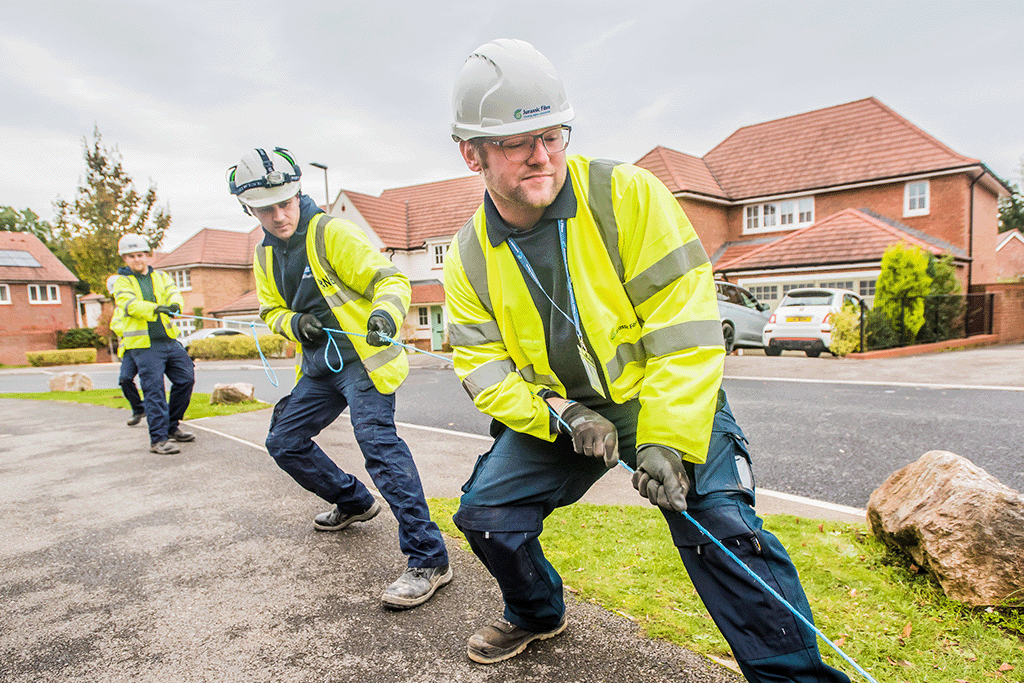
Insights
Is full fibre broadband environmentally friendly?
When we think of being kind to the environment, we usually think of solar panels, electric cars, paper straws, and all the other green initiatives that receive so much attention.
It might surprise you to learn that using fibre optic internet can also be added to the list of ways to be kinder to the planet.
Switching to full fibre broadband isn’t just a smart decision for your home or business; it also boasts a number of environmental benefits and plays a significant role in shaping a sustainable, carbon-neutral future.
From energy efficiency to reduced carbon emissions, we explore some of the top reasons for switching to full fibre broadband if looking out for the environment is your thing!
Reduced waste and greater durability
Full fibre broadband uses fibre optic cables to directly deliver the internet to the desired property. This replaced the outdated copper cables that have, up to this point, played a key role in the UK’s internet infrastructure. Created from glass produced from silicon – a naturally abundant element – fibre optic technology is a far more sustainable option when compared to the destructive copper mining processes required to create copper cables.
Fibre optic cables are also more durable than regular wires. The fibres themselves are far more robust than their predecessors, and they’re made with a protective coat, making them less likely to be damaged by adverse weather and more resistant to corrosion and deterioration. This means that fibre cables generally require a lot less repair and replacement, which naturally improves their sustainability and also offers reassurance to those in rural or remote areas where network disruptions can have serious consequences.

Energy efficiency of fibre optic cables
When it comes to energy efficiency, it’s safe to say that fibre optic cables massively outperform copper; requiring on average 70% less energy to transmit the same amount of data, and over longer distances. This is because fibre optic cables have lower resistance than copper cables, meaning they lose less power and generate less heat while transmitting. As a result, this eliminates the need for cooling network equipment in an exchange, leading to a massive reduction in overall energy consumption and a further reduction in the network’s carbon emissions.

What is FTTP?
When discussing fibre optic broadband, one of the acronyms you’re likely to come across is ‘FTTP’. This simply stands for ‘Fibre to the Premises’.
Instead of old copper wires carrying the data signal at any point between the exchange and your property, you get all the benefits of a complete fibre connection for all the services your household could possibly need.
Learn more about FTTP here.
Is FTTP kinder to the environment?
We already know that full fibre broadband uses less power and creates less waste than copper wire networks, but an additional benefit is that since there are fewer electrical components required for transmission, the hardware used is smaller and easier to recycle. Better yet – when an old copper line is replaced with a new one made of fibre, it means that there’s no need to dig anything up or tear down any poles. This makes it a far more eco-friendly option overall as it means less trees being cut down, fewer carbon emissions and lower maintenance costs.
Ready to make a positive impact?
Choosing fibre optic internet goes way beyond the fast and reliable connectivity it offers – it’s also a decision that carries enormous weight over the impact on the environment.
By choosing fibre optic technology, you’re taking part in a larger initiative that contributes to a greener and more sustainable digital future – something we should all be focusing on with the growing demand for data centres and cloud computing services in our increasingly digital world.
As customers and consumers, our choices can directly influence the demand for sustainable technology, so if you think your choice doesn’t matter – think again!
Latest news
A network for the future
Why Jurassic Fibre?


